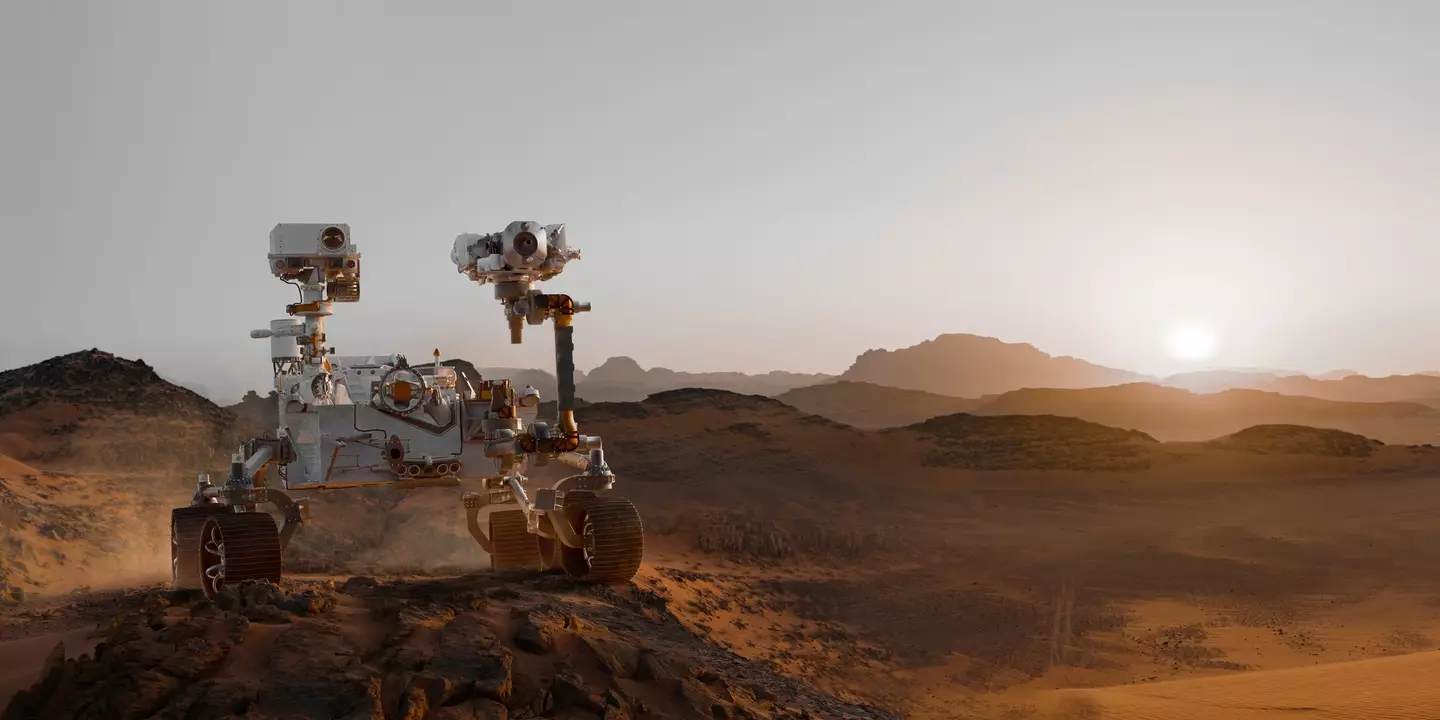
NASA’s Curiosity rover has detected the largest organic compounds ever found on Mars and they could point to signs of Martian life.
The discovery was from a rock sample called Cumberland, which was actually drilled back in 2013 in a spot called Yellowknife Bay - an area inside Mars' Gale Crater that scientists believe was once a lakebed.
That same region has already turned up some interesting minerals in the past like clay, sulphur, nitrates and methane - all signs that it could’ve once supported the kind of chemistry needed for life.
This time, researchers uncovered long-chain organic molecules called decane (C10), undecane (C11) and dodecane (C12).
Advert

The molecules were identified by Curiosity’s onboard Sample Analysis at Mars (SAM) lab.
Scientists believe these molecules are the thermal breakdown products of longer fatty acids such as undecanoic acid, dodecanoic acid and tridecanoic acid.
This is pretty groundbreaking as fatty acids are fundamental to life on Earth, forming cell membranes and carrying out other biological functions.
Whilst this isn't full proof of life, the complexity of the molecules is a step forward in identifying environments that might have hosted or preserved life.
What really stood out to the scientists was that these organic molecules had carbon chains longer than 12 atoms, which is pretty unusual without living process.
Most abiotic fatty acids are short-chained which opens up the possibility that longer-chain molecules (maybe life-related) exist, but Curiosity's onboard lab (SAM) might not be advanced enough to detect them.
“Although abiotic processes can form these acids, they are considered universal products of biochemistry, terrestrial, and perhaps Martian,” the scientists wrote in Proceedings of the National Academy of Sciences.
That’s why researchers, including Dr. Caroline Freissinet from CNRS France, who led the study, said this discovery adds even more weight to the push for a Mars Sample Return mission.
“These molecules can be made by chemistry or biology,” said Dr. Freissinet. “If we have long-chain fatty acids on Mars, those could come – and it’s only one hypothesis – from membrane degradation of cells present 3.7bn years ago.”
Meanwhile, the James Webb Space Telescope (JWST) has released a new image showing powerful jets of gas blasting out from a forming star.
Together, these discoveries demonstrate the wide range of processes taking place in the our universe - from the development of organic molecules on a nearby planet to the formation of stars in distant regions of space.